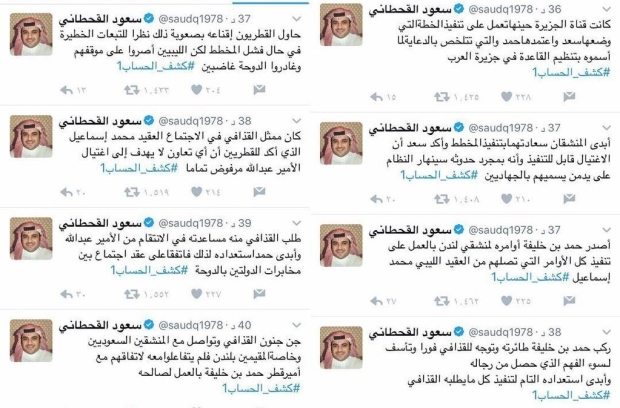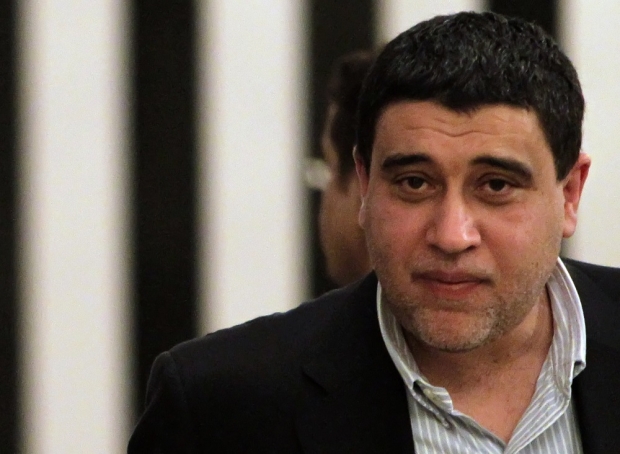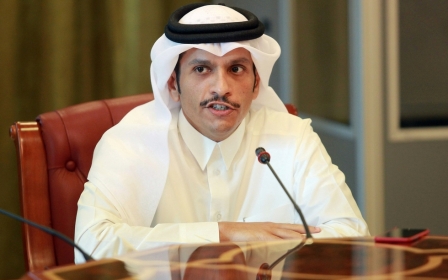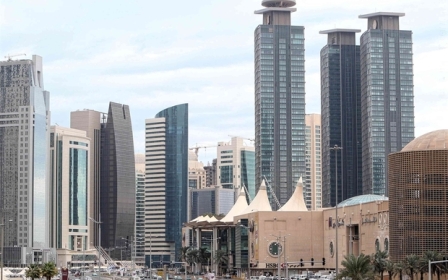'UAE ruler's friend' ran Libyan plot to kill Saudi crown prince
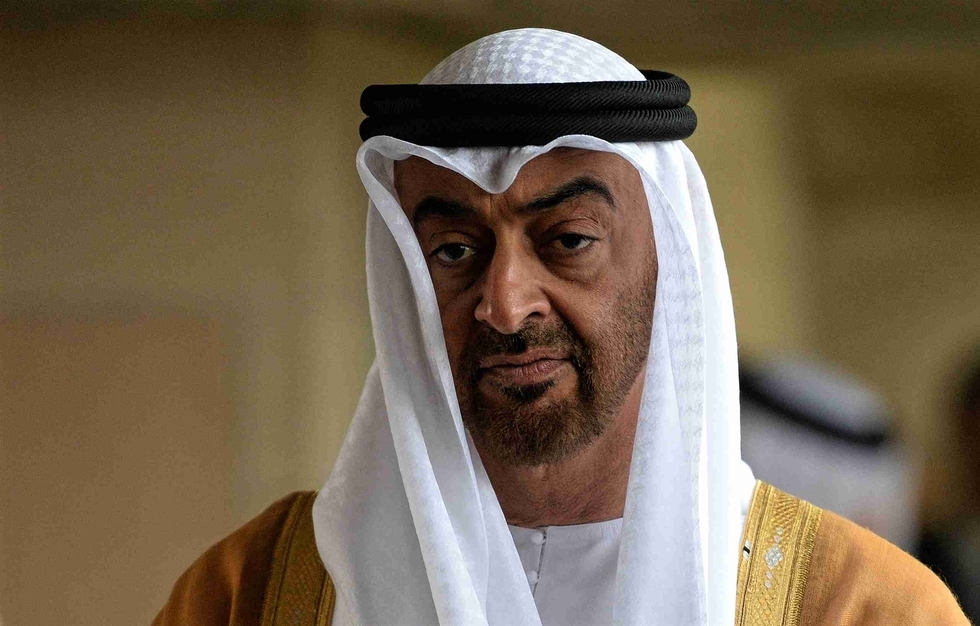
A Libyan spy who acted as the bagman in a botched plot to kill the late Saudi king Abdullah has close links to the de facto ruler of the UAE, according to claims made by a son of Muammar Gaddafi that rock Saudi claims of Qatari involvement.
Saudi Foreign Minister Adel al-Jubeir this month claimed Qatar's former emir, Sheikh Hamad bin Khalifa al-Thani, plotted in 2003 with the former Libyan dictator to kill Abdullah bin Abdul Aziz, the then-Saudi crown prince, in Mecca.
The plot, which was ordered by Gaddafi, was overseen by Mohammed Ismail, a colonel in Gaddafi's military intelligence, Libyan spy chief Moussa Koussa and Abdurahman Alamoudi, an American Muslim leader now serving a 23-year jail sentence in the US after confessing his part in the assassination attempt.
The plotters planned to assassinate the Saudi royal by firing a missile at his motorcade. Ismail was central to the plot, both in recruiting potential assassins and facilitating the payment of Saudi dissidents in London to take part in the plot.
However, in a previously unreported 2014 interview, Gaddafi's son Al-Saadi said Ismail had become a close friend of Abu Dhabi's crown prince, Mohammed bin Zayed, had his direct phone line, and was granted Emirati citizenship after the fall of Gaddafi's government in 2011.
Jubeir said in an interview with al-Arabiya: "Regarding terrorism in Saudi Arabia backed by Qatar, in one case we found a Qatari role in Gaddafi’s plot to assassinate the former king in Mecca."
Separately a royal adviser, Saud al-Qahtani, alleged on Twitter that Qatar's former emir was personally involved in the failed plot. He claimed Sheikh Hamad travelled to Tripoli and told Gaddafi he was ready "to fulfill all his requests" to get Saudi dissidents involved.
Qahtani said Gaddafi launched the plan after being insulted by Abdullah at an Arab League conference.
In his posts, Qahtani said: "Gaddafi was extremely angry and established contact with Saudi dissidents, specifically those living in London, who did not cooperate with him due to their agreement to work for the emir of Qatar, Hamad bin Khalifah.
"Gaddafi asked the emir to help him exact revenge upon Abdullah, and Hamad indicated his preparedness, so they agreed to hold a meeting.
"Hamad Bin Khalifah then issued his orders to the dissidents of London to execute all commands that reach them from the Libyan Colonel Mohammed Ismail."
But the interview with Al-Saadi Gaddafi, first broadcast online by Libyan media in November 2014 after his arrest in Niger and extradition to Libya, highlights Ismail's alleged links with the UAE, an arch foe of Qatar.
In the video, Saadi states: "... and Mohammed Ismail, they gave him UAE citizenship - he lives in Abu Dhabi. Mohammed Ismail was brought to the UAE by Mohammed bin Zayed.
"Mohammed bin Zayed has a mobile phone number that is reserved only for communication with heads of state - Mohammed Ismail has that number. Even I do not have it, but Mohammed Ismail has it."
MEE has been unable to verify the circumstances under which the video was recorded.
To kill a mocking prince
Saudi authorities convicted Ismail for his role orchestrating the plot after he was arrested in November 2003, hours after he left the kingdom as the plan fell apart. Saudi officials said he had confessed to his role and was also being interrogated by FBI and CIA agents.
The 2003 plot was hatched by Gaddafi, reports said, after he had been mocked by Abdullah at an Arab League summit, where Abdullah stated in open session that Gaddafi's "lies precede you and your grave is in front of you''.
Contemporary reports said the plot involved the payment of $1m to Saudi militants who would use grenades or shoulder-held missiles in the attack on Abdullah as he drove through Mecca.
The Washington Post reported that the plot was botched at several stages, including the transfer of money to the wrong bank in Medina, and the cash being stuffed into several bags and left outside a room at the Hilton hotel in Mecca for pick-up by a Saudi courier.
Mohammed bin Zayed has a mobile phone number that is reserved for heads of state - Mohammed Ismail has that number
- Saadi Gaddafi
Ismail was reported as saying that his mission was to pay the militants. His statements, crossed referenced with those of Alamoudi, was deemed credible enough for the US to launch an investigation.
British officials also investigated the case and the alleged role of two London-based Saudi dissidents.
The New York Times reported that FBI interrogators asked Ismail whether he had been tortured or abused while in custody in Saudi Arabia.
Ismail replied that he had been treated well and that he wanted to apply for political asylum, because he assumed that if he returns to Libya, he would be killed.
However, Ismail was pardoned by King Abdullah when he took the throne in 2005 as part of a rapprochement with Libya.
He returned to Libya where Middle East Eye understands he continued to serve the Gaddafi family as a "gatekeeper".
MEE has been unable to confirm Ismail’s current whereabouts, though he was reported to have been in contact with Saif al-Islam, another of Gaddafi's son, as recently as 2012.
The return of the Gaddafi clan?
Saadi also states in the video that the UAE had planned to reinstate a Gaddafi family member as ruler of Libya.
"Mohammed bin Zayed wants to bring Saif al-Islam Gaddafi back into political life in Libya but only once the situation in Libya calms down,” he said.
Saif al-Islam was recently released from prison, where Ismail has maintained contact with him via his legal team, and taken to eastern Libya, which is controlled by General Khalifa Haftar, the UAE's ally in Libya.
The claims by Jubeir and Qahtani come as Saudi Arabia leads a blockade against Qatar over links to "terrorism" and support for Iran. Qatar denies the claims.
Saudi Arabia, backed by the UAE and Bahrain, has failed in two weeks of dispute to produce any evidence against Qatar, including the claims of the assassination attempt, which the US State Department said on Tuesday was "mystifying".
Last week it listed 13 demands to end the blockade, including serious curbs on foreign policy and the closure of Al Jazeera - which were outright rejected by Doha.
This article is available in French on Middle East Eye French edition.
Middle East Eye propose une couverture et une analyse indépendantes et incomparables du Moyen-Orient, de l’Afrique du Nord et d’autres régions du monde. Pour en savoir plus sur la reprise de ce contenu et les frais qui s’appliquent, veuillez remplir ce formulaire [en anglais]. Pour en savoir plus sur MEE, cliquez ici [en anglais].


